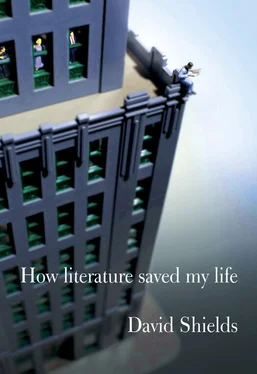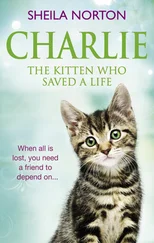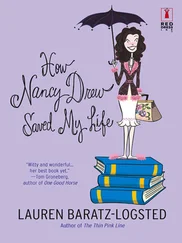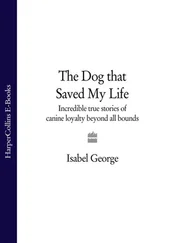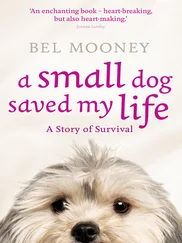David Shields - How Literature Saved My Life
Здесь есть возможность читать онлайн «David Shields - How Literature Saved My Life» весь текст электронной книги совершенно бесплатно (целиком полную версию без сокращений). В некоторых случаях можно слушать аудио, скачать через торрент в формате fb2 и присутствует краткое содержание. Город: New York, Год выпуска: 2013, ISBN: 2013, Издательство: Alfred A. Knoff, Жанр: Критика, Биографии и Мемуары, на английском языке. Описание произведения, (предисловие) а так же отзывы посетителей доступны на портале библиотеки ЛибКат.
- Название:How Literature Saved My Life
- Автор:
- Издательство:Alfred A. Knoff
- Жанр:
- Год:2013
- Город:New York
- ISBN:978-0-307-96153-2
- Рейтинг книги:3 / 5. Голосов: 1
-
Избранное:Добавить в избранное
- Отзывы:
-
Ваша оценка:
How Literature Saved My Life: краткое содержание, описание и аннотация
Предлагаем к чтению аннотацию, описание, краткое содержание или предисловие (зависит от того, что написал сам автор книги «How Literature Saved My Life»). Если вы не нашли необходимую информацию о книге — напишите в комментариях, мы постараемся отыскать её.
Blending confessional criticism and anthropological autobiography, Shields explores the power of literature (from Blaise Pascal’s
to Maggie Nelson’s
, Renata Adler’s
to Proust’s
) to make life survivable, maybe even endurable. Shields evokes his deeply divided personality (his “ridiculous” ambivalence), his character flaws, his woes, his serious despairs. Books are his life raft, but when they come to feel unlifelike and archaic, he revels in a new kind of art that is based heavily on quotation and consciousness and self-consciousness—perfect, since so much of what ails him is acute self-consciousness. And he shares with us a final irony: he wants “literature to assuage human loneliness, but nothing can assuage human loneliness. Literature doesn’t lie about this—which is what makes it essential.”
A captivating, thought-provoking, utterly original way of thinking about the essential acts of reading and writing.
Cheryl Strayed is the author of the best-selling memoir
. Strayed writes the “Dear Sugar” column on TheRumpus.net. Her writing has appeared in the
, the
,
,
,
, the
,
,
,
, the
and elsewhere. The winner of a Pushcart Prize as well as fellowships to the Bread Loaf Writers’ Conference and the Sewanee Writers’ Conference, her essays and stories have been published in
,
, and other anthologies. Great books are born of grand passions. The best literature is made when authors refuse to rest easy, but instead dig into their obsessions in order to express not just what’s true, but what’s truer still. This greatness is apparent on every page of David Shields’s
, a culturally searching declaration of the power and limitations of literature that’s also a highly idiosyncratic, deeply personal soul search by one super smart man who consumes and considers books as if his life depends on it.
Part memoir, part manifesto,
is as wide-ranging as it is intimate, and much of its power lies in the ambitiousness of Shields’s reach. It’s a book that defies definition. My category for it is simply
. It’s a serenade wrapped inside a cross-examination; an intellectual book that reads like a detective novel. In its pages, one reads about subjects as diverse as Tiger Woods, the theory that someday tiny robots will roam inside our bodies to reverse the damage caused by aging, Renata Adler’s Speedboat, and the private journals of Shields’s unsuspecting college girlfriend.
This is a long way of saying that
is a book with balls. It doesn’t ask for permission to be what it is: an original, opinionated, gentle-hearted, astonishingly intelligent collage of the ideas, reflections, memories, and experiences of a writer so avidly determined to understand what literature means that the reader must know too.
Amazon Best Books of the Month, February 2013: Amazon.com Review
Amazon Guest Review of “How Literature Saved My Life,” by David Shields
By Cheryl Strayed
Amazon.com Review Anyone who gives a hoot about the status and the future of storytelling needs this rangy, brainy, bad-ass book—a book that celebrates books, dissects books, and pays homage to the creators of our stories. Packed with riffs and rants—some hilarious, some brilliant, some flat-out zany—this is caffeinated, mad-genius stuff: sly, manic, thoughtful, and witty. (Shields’ three-page self-comparison to George W. Bush—“he likes to watch football and eat pretzels”—is especially fun.) At times, I felt like I was on a madcap tour of an eccentric professor’s private basement library, never knowing what was around the next corner. My review copy is littered with underlines and exclamation points and, yes, a handful of WTFs. Part critical analysis, part essay, and part memoir,
offers its liveliest passages when Shields reveals Shields. A stutterer, he developed an early kinship with the written word, since the spoken word came to him with “dehumanizing” difficulty. Which makes one of his final lines all the more potent: “Language is all we have to connect us, and it doesn’t, not quite.”
—Neal Thompson
